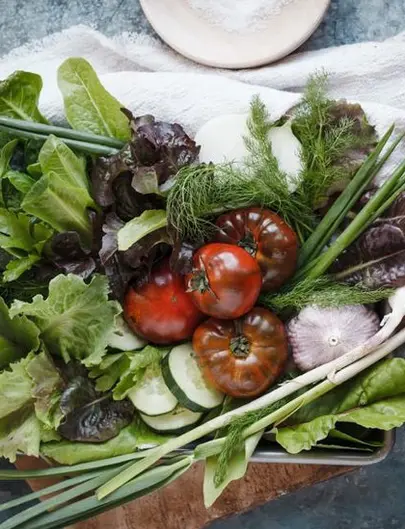Here at GMB HQ we only source products for our boxes that are GMO-Free and natural. So we thought it was time to give you a run down on what they are and why we avoid them.
What are GMOs?
These days, we often have no clue what we’re eating. Our food is often laced with nasty ingredients. That’s why it’s up to us, as consumers, to learn as much as we can.
Let’s shine the spotlight on GMO foods. They’re lining supermarket shelves and maybe even your pantry, but what are they exactly?
What does GMO mean?
Genetically modified organisms (GMOs) are new plants, animals or micro-organisms that have been genetically engineered. In other words, in a lab. It works like this; scientists extract genes from the DNA of a species (such as an animal or plant) and combine them with the DNA of another species. The result is an organism with artificial genes. The process is also called Genetic Engineering (GE) or Genetic Modification (GM).
How do I know if my food is GM?
Are you eating GMO foods? The answer is probably yes.
In Australia, some GM foods and food ingredients are “approved” for use by FSANZ. At the moment, canola and cotton are the only GM food crops produced here. Many cotton crops are modified to be insect-resistant, while canola is altered to tolerate herbicides. But before you just swear off margarine, FSANZ allows manufacturers to use a variety of GM food ingredients from overseas. And that’s where you need to be on high alert.
Are GM foods labelled?
In Australia, GM food products (including wholefoods and ingredients in processed foods) must be labelled as such. With packaged foods, you’ll see the words “genetically modified” on the label, usually in the ingredient list. For instance, “genetically modified soybeans”. And with unpackaged foods, the information must be displayed at the point of sale.
But there are exceptions. Foods do NOT need to be labelled as GM if they’re:
- highly refined, such as cooking oils or baked goods
- made at bakeries and restaurants
- derived from animals that are given GM feed
How to avoid GM foods
Steer clear of processed foods. Be wary of cotton and canola products, as well as GM varieties of soybeans, corn, rice and potatoes. You’ll find them in:
- GM soybean products - processed breads, pastries, chocolates and mayonnaise
- GM corn products - cornflour, corn syrup, fried foods, and confectionery
- GM potato products - processed chips
GMOs are sneaky. They’re also hidden in foods under other ingredient names, such as corn starch, food starch, hydrogenated starch, high fructose corn syrup, dexterin, malt syrup, hydrolysed vegetable protein, aspartame, fructose, glucose, glycerin, triglyceride, textured vegetable protein, soy isolates, soy lecithin, whey, canola oil, vegetable oil, monosodium glutamate (MSG), citric acid, diacetyl and isoflavones.
So, if an ingredient sounds fake or you can’t pronounce it, it’s a good idea to look into it…
Sure, that makes grocery shopping a little more tedious, but this is your health. Why risk it?
Go organic
It’s the best way to avoid consuming genetically modified ‘ingredients’. GM food production is banned under organic certification standards in Australia.
At GoodnessMe Box, we say no to nasties and only include GMO-free products in our boxes.
Did you know all this about GMOs? What’s the most surprising thing?

